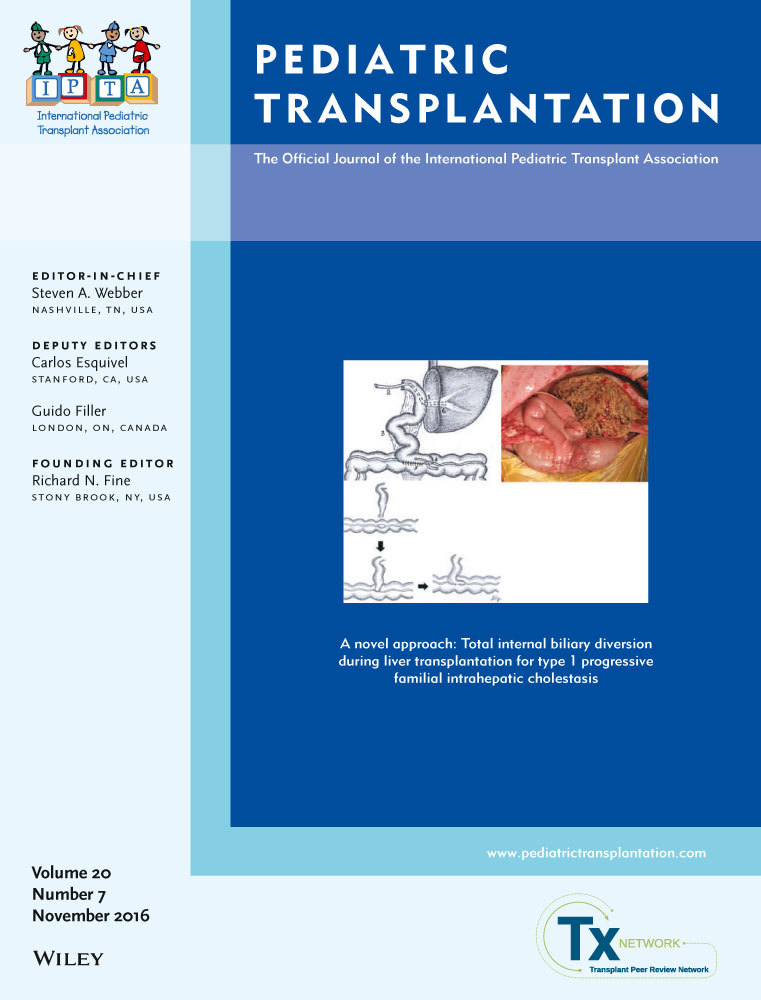Post-transplant blood transfusions and pediatric renal allograft outcomes
Abstract
The association of blood transfusions with GS after pediatric KTx is unclear. We retrospectively analyzed blood transfusions post-KTx and subsequent outcomes. Between 1984 and 2013, 482 children (<18 years of age) underwent KTx at our center. Recipient demographics, outcomes and transfusion data were collected. Cox regression with post-KTx blood transfusion as a time-dependent covariate was performed to model the impact of blood transfusion on outcomes. Of the 208 (44%) that were transfused, 39% had transfusion <1 month post-KTx; 48% >12 months. Transfused and non-transfused recipients were not significantly different. In univariate and multivariate analyses, there was no difference between transfused and non-transfused recipient patient survival, antibody-mediated and ACR, and DSA free survival. Transfusions <1 month post-KTx did not impact DCGS (P=NS). Patients transfused >12 months post-KTx had significantly lower 12 month eGFR (compared to non-transfused) and worse subsequent DCGS. Post-KTx blood transfusions have increased in pediatric KTx over time but have no negative association with rejection or DSA production. DCGS is unaffected by transfusion within first month. Transfusions after the first year occur in patients with more advanced chronic kidney disease and are associated with significantly worse DCGS.




